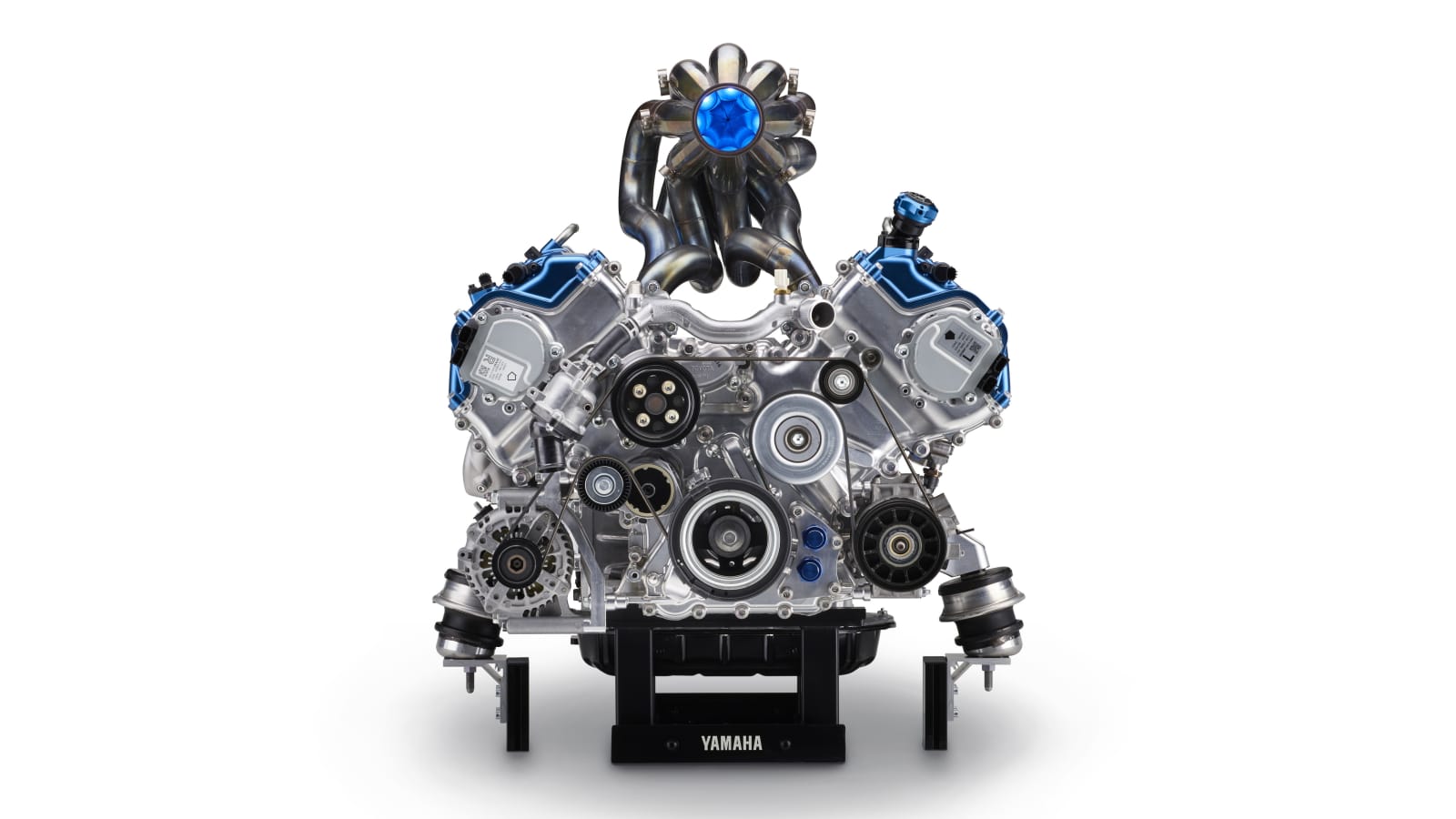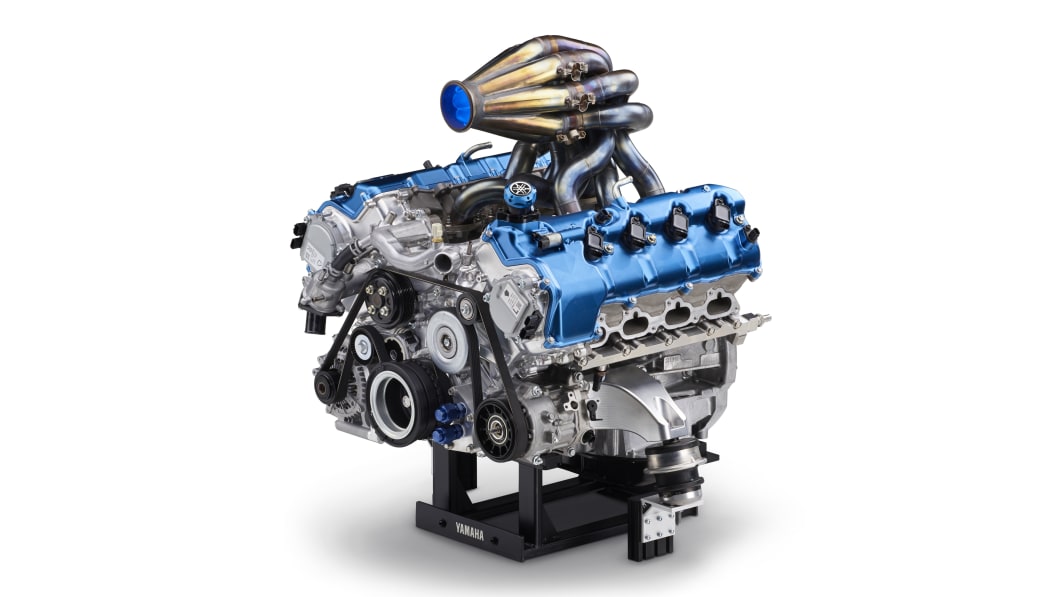History proves that when Toyota and Yamaha work together to build an engine, the result is insanely cool. The Lexus LFA’s V10 was a joint effort of the two, and it’s still the best-sounding production motorcycle ever made. Today’s news concerns another engine developed between Toyota and Yamaha, but it runs on hydrogen.
Yes, it’s weird. This engine is a 5.0-liter V8 designed to run on hydrogen, not gasoline. The engine developed by Yamaha begins life as the 5.0-liter V8 found in cars such as the Lexus IS 500 F Sport Performance, RC F and others. Then Yamaha makes changes to the injectors, cylinder heads, intake manifold “and more”. Right now, Yamaha doesn’t seem eager to give up all its secrets, but at least we know it’s happening.
The power of this hydrogen-powered engine is not far from the numbers Lexus can achieve with old-fashioned gasoline. When run on hydrogen, Yamaha claims 455 horsepower (at 6,800 rpm) and 398 pound-feet of torque (at 3,600 rpm).
This project follows a joint announcement by Toyota, Yamaha, Kawasaki, Subaru and Mazda that they would “enter discussions to jointly explore possible ways to expand the range of fuel options for internal combustion engines in the quest for carbon neutrality.”

“Hydrogen engines have the potential to be carbon neutral while keeping our passion for the combustion engine alive,” said Yoshihiro Hidaka, president of Yamaha Motor. “Collaborating with companies of different corporate cultures and areas of expertise and expanding the number of partners we have is how we want to lead the way into the future.”
Yamaha believes that a hydrogen-powered petrol engine has the potential to keep the interesting parts of a petrol engine alive – the sound, the powerband, the feel – while being carbon neutral. The “harmonic high-frequency exhaust note” of a unique 8-in-1 header is cited as a reason to be excited about a future hydrogen-powered V8.
“I started to see that engines using only hydrogen as fuel actually had some really nice, easy-to-use performance features,” said Takeshi Yamada of the Automotive Development Department at Yamaha’s Technical Research & Development Center. “Hydrogen engines are naturally friendly to the touch, making them easy to use, even without resorting to electronic driver aids. Everyone who came to test drive the prototype car started off a bit skeptical, but came out of the car at the end with a big smile. Seeing this, I came to believe that there is tremendous potential in the properties unique to hydrogen engines, rather than simply seeing it as a replacement for gasoline.”
Related video:
